The first-ever Asian Women’s Forum 2024 is being held in Samarkand, Uzbekistan, on 13-14 May 2024, on the theme “Regional approach in issues of women’s economic, social and political empowerment”.
The Forum is a landmark event aimed at promoting the economic, social and political rights and opportunities of women on the Asian continent. It is organized by the Senate of the Oliy Majlis of Uzbekistan in cooperation with key stakeholders and with the support of the UN Women.
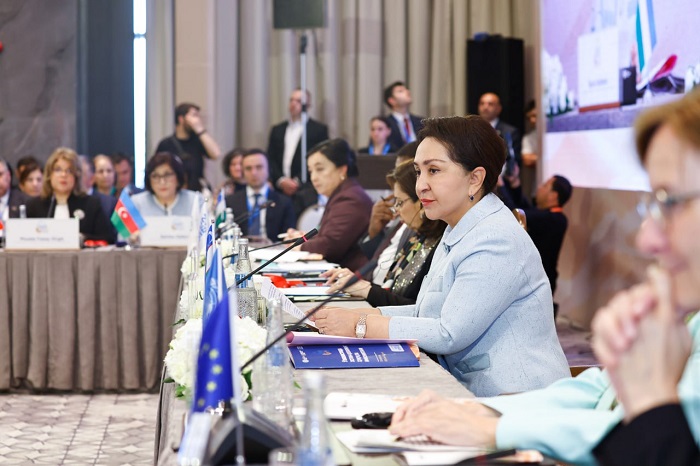 During the 78th session of the UN General Assembly, Uzbekistan President Shavkat Mirziyoyev proposed the Asian Women’s Forum. This initiative aims to empower women leaders across Asia by facilitating experience sharing, expanding their roles in governance and society, and strengthening their economic influence.
During the 78th session of the UN General Assembly, Uzbekistan President Shavkat Mirziyoyev proposed the Asian Women’s Forum. This initiative aims to empower women leaders across Asia by facilitating experience sharing, expanding their roles in governance and society, and strengthening their economic influence.
Women’s empowerment is an integral part of human rights becoming relevant in the context of the ongoing intensive and complex processes of globalization. Today, the Asian continent is home to 4,82 billion people, which is 60,6 per cent of the world’s population. Also, 2,3 billion or 48,8 per cent of the total population of the region are women, according to UN Women.
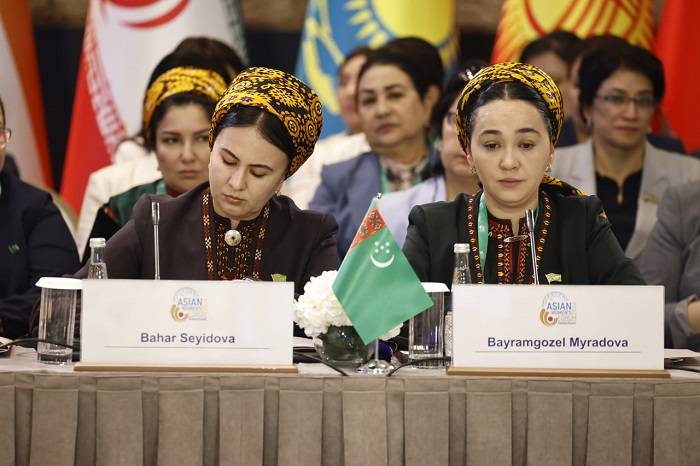 The event brought together more than 30 distinguished guests, representatives of foreign countries and international organizations – women deputies of parliaments of East Asia, Southeast Asia, South Asia and Central Asia, heads of government, representatives of more than 40 representative offices of foreign countries in Uzbekistan and foreign organizations, as well as local government agencies, about 400 representatives of civil society institutions, women leaders, businesswomen, political scientists, social activists, scientists, representatives of economic sectors and various spheres and active women.
The event brought together more than 30 distinguished guests, representatives of foreign countries and international organizations – women deputies of parliaments of East Asia, Southeast Asia, South Asia and Central Asia, heads of government, representatives of more than 40 representative offices of foreign countries in Uzbekistan and foreign organizations, as well as local government agencies, about 400 representatives of civil society institutions, women leaders, businesswomen, political scientists, social activists, scientists, representatives of economic sectors and various spheres and active women.
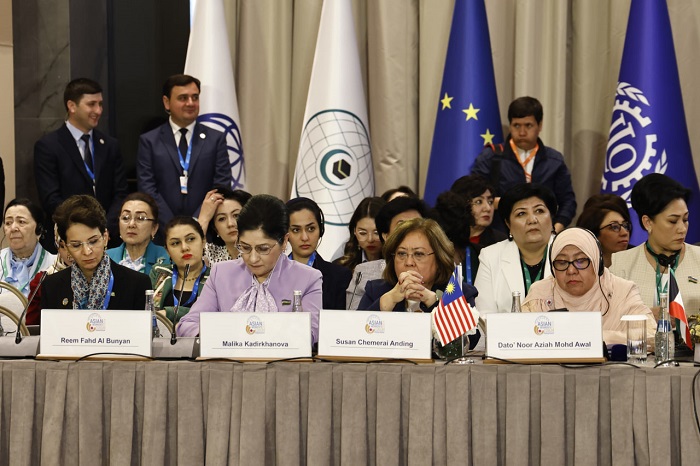 Tanzila Narbayeva, Chair of the Uzbekistan Senate and head of the national commission on gender equality, emphasized the critical role of women’s participation in public life, especially during times of global instability.
Tanzila Narbayeva, Chair of the Uzbekistan Senate and head of the national commission on gender equality, emphasized the critical role of women’s participation in public life, especially during times of global instability.
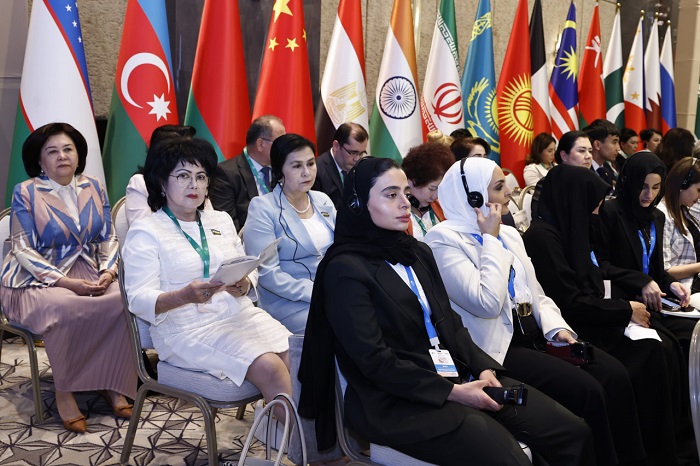 She stressed that an exchange of experience has been established between women in the Asian region, in particular, the Dialogue of Women Leaders of Central Asian countries today serves as an effective platform for addressing urgent problems in the region related to ensuring gender equality, protecting the rights and interests of women and, based on its experience, it is necessary to unite women throughout Asia.
She stressed that an exchange of experience has been established between women in the Asian region, in particular, the Dialogue of Women Leaders of Central Asian countries today serves as an effective platform for addressing urgent problems in the region related to ensuring gender equality, protecting the rights and interests of women and, based on its experience, it is necessary to unite women throughout Asia.
“Globally, equality has advanced in many areas, including the economic sphere. Yet, still barely half of the world’s women participate in the global workforce. This is not just unfair. It is wasteful. The Asian Women’s Forum offers a great momentum to spark the change we need to advance the rights of women and girls in this region and beyond. I urge us all to seize this opportunity,” stressed UN Women’s Executive Director, Sima Bahous, opening Asian Women’s Forum.
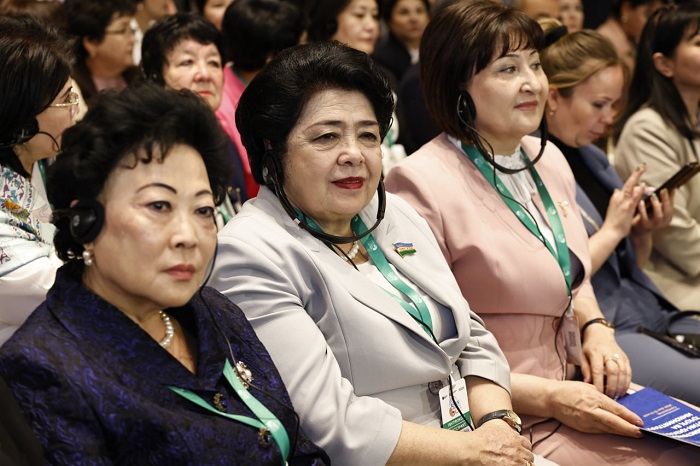 The Forum is held in 10 parallel sessions:
The Forum is held in 10 parallel sessions:
-Beijing Platform for Action +30: Challenges and opportunities for women’s economic empowerment in the modern global economy.
-Women’s empowerment is the key to achieving the Sustainable Development Goals.
-Women’s Economic Empowerment: The role of parliament in stimulating their participation in business and society.
-Strengthening regional cooperation in ensuring women’s access to quality education, science, digital technologies and expanding their participation in innovation activities.
-Financing gender equality: The development of women’s and family entrepreneurship as an important factor in poverty reduction and economic development in the region.
-Gender-responsive budgeting and closing the gender gap in financial inclusion.
-The current demographic situation in the Asian region and its impact in ensuring inclusive economic growth.
-Regional aspects of the elimination of all forms of violence against women and children: Preventive measures to eliminate their negative impact on the socio-economic development of the country.
-Protecting and preserving the environment, promoting a “green” economy and the impact of climate change on gender issues in the region.
-Best practices, experiences and innovative approaches of non-governmental organizations (NGOs) in the region in protecting the rights and interests of women.

